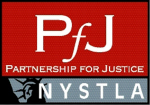 In our business as settlement consultants we are keenly aware of the different dynamics that come into play in personal injury litigation and how those dynamics can often help promote a negotiated resolution of the case. As we’ve written before, the various weaknesses you become aware of in the course of developing your case, as either plaintiff or defense counsel, will often create an incentive to prefer negotiation over the courtroom.
In our business as settlement consultants we are keenly aware of the different dynamics that come into play in personal injury litigation and how those dynamics can often help promote a negotiated resolution of the case. As we’ve written before, the various weaknesses you become aware of in the course of developing your case, as either plaintiff or defense counsel, will often create an incentive to prefer negotiation over the courtroom.
But it’s not just perceived weakness in your own position that creates an incentive to settle. Sometimes it’s the strength of your position that gives rise to a dynamic in favor of settlement. And in those situations, experience has shown us that it’s important to play your strong hand wisely (and without showing much willingness to compromise) in order to achieve an optimal negotiated outcome.
A recent case we handled for a client illustrates this point nicely. It was a case involving a construction accident brought under section 240 of New York’s State’s Labor Law, also known as the scaffold law, which imposes strict liability on a general contractor and premises owner. Back in May of 2014, our client had brought and won a motion for summary judgment on the issue of liability, leaving only the question of damages for resolution at trial.
Obviously, this is a position that every personal injury lawyer relishes being in. Under New York law there is a further advantage – once you win your motion for summary judgment, interest begins to accrue on the damage claim effective as of the date of the summary judgment decision. And what’s more in New York the interest accrual rate on damages is currently 9%. This establishes a powerful incentive for defense counsel to settle a case. This is what we refer to as uncomfortable exposure and it’s usually more than enough to make the most hardened adjustor squirm.
In this type of situation, though, it’s important for plaintiff’s counsel not to be or appear overly eager about settlement. In our experience it is much more effective to let the uncomfortable exposure and a ticking clock work their own magic on your client’s behalf.
In this particular case, the insurance carrier made it clear they would be ready to settle for up the amount of the policy limit so long as the plaintiff was willing to drop the claim for interest accrual. But under these circumstances we don’t always recommend or see the need for such compromise. The insurance company is on the hook for the interest on damages even to the extent it accrues above the policy limit, which in this instance had already resulted in an incremental exposure of $900,000 above the policy limit. As such, we saw no reason to settle for the policy limit and in fact our client ended up with a settlement that included a significant portion of the accrued interest.
In order to maximize recovery in settlement negotiations, it’s just as important to know when to say no as it is to know when to say yes.


Leave a Reply